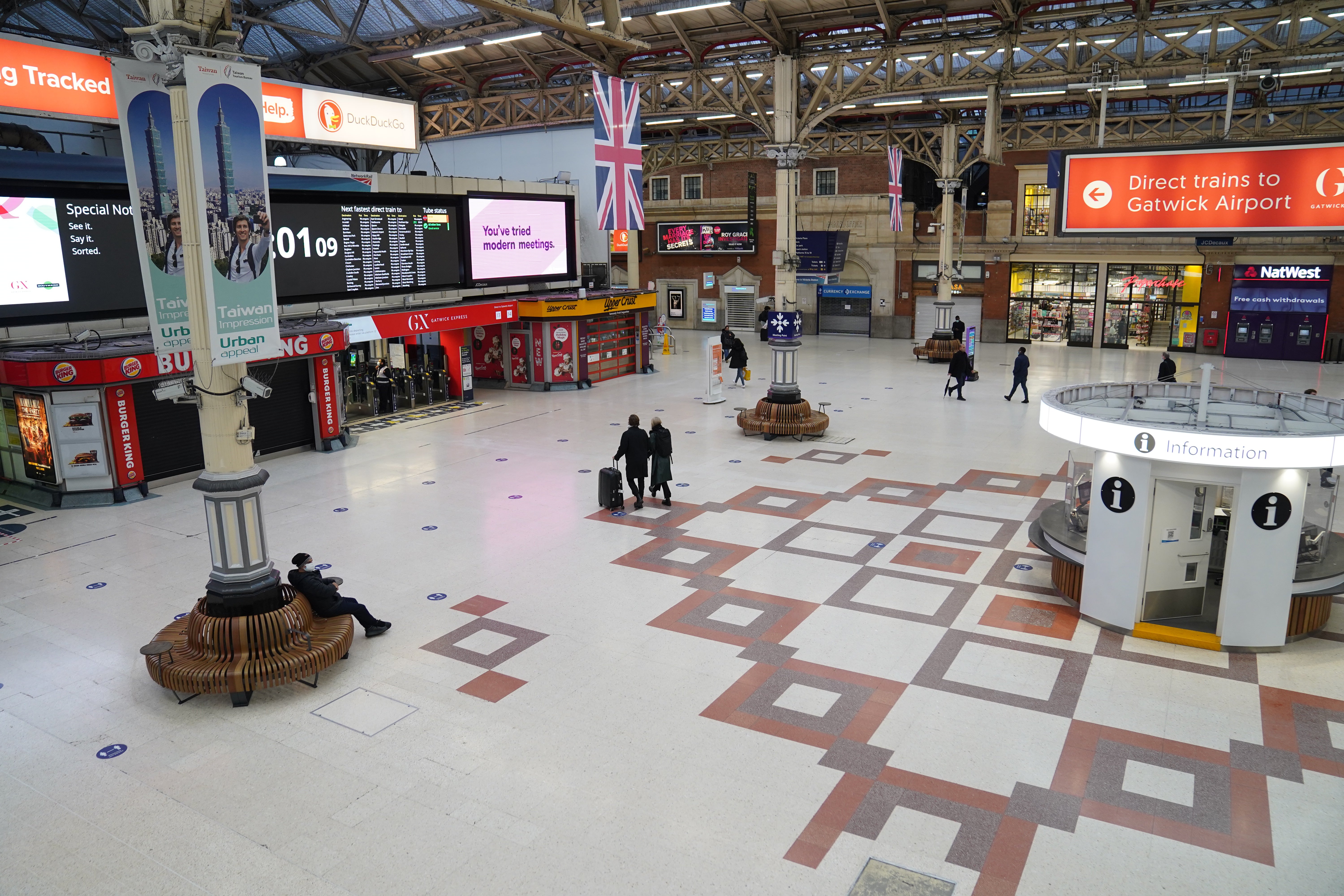Rail firms defend decision to axe hundreds of trains
The Rail Delivery Group said the introduction of emergency timetables would create a more reliable service.

Your support helps us to tell the story
From reproductive rights to climate change to Big Tech, The Independent is on the ground when the story is developing. Whether it's investigating the financials of Elon Musk's pro-Trump PAC or producing our latest documentary, 'The A Word', which shines a light on the American women fighting for reproductive rights, we know how important it is to parse out the facts from the messaging.
At such a critical moment in US history, we need reporters on the ground. Your donation allows us to keep sending journalists to speak to both sides of the story.
The Independent is trusted by Americans across the entire political spectrum. And unlike many other quality news outlets, we choose not to lock Americans out of our reporting and analysis with paywalls. We believe quality journalism should be available to everyone, paid for by those who can afford it.
Your support makes all the difference.Rail firms have defended their decision to axe hundreds of daily trains amid coronavirus-related staff shortages.
The Rail Delivery Group (RDG) industry body said the introduction of emergency timetables with reduced frequencies would create a more reliable service and fewer short-notice cancellations.
It added that the move would also provide “better value for taxpayers” by reflecting the reduced demand for travel.
Operators ran “as many services as possible” in the run-up to Christmas to support festive travel, according to the group.
But several firms have now cut the number of trains after working with the Government to create amended timetables because around 10% of rail staff are absent from work.
The new schedules focus on peak travel times to provide trains for key workers, school pupils and people who cannot work from home.
ScotRail implemented a temporary weekday timetable this week, cutting more than 150 daily services.
Services must still meet the needs of those who have to travel, especially key sector workers
Southern is not serving London Victoria until next week, while CrossCountry has removed around 50 trains a day from its timetables.
A number of other operators are also running reduced services, including London North Eastern Railway, Greater Anglia and TransPennine Express.
RDG’s director of people, operations and railway strategy, Susie Homan, said: “The temporary timetables that rail companies are putting in place, with Government support, will help ensure more reliable services with fewer short-notice cancellations so that we can continue to get people and goods to where they need to be.
“The Government has supported the railway with over £15 billion since the start of the pandemic, and it makes sense to better match the number of trains that are running with the number of people travelling, so that the industry gets the most out of every taxpayer pound and doesn’t take more than its fair share of public money.”
Anthony Smith, chief executive of watchdog Transport Focus, said: “Amending timetables is a pragmatic response to rising staff illness if it prevents chaotic last-minute cancellations.
“But services must still meet the needs of those who have to travel, especially key sector workers.
“Operators must protect first and last services, provide enough space to keep passengers at a safe distance from each other, and flexibility so that tickets can be used on alternative routes or times.”
Rail, Maritime and Transport union general secretary Mick Lynch said: “No-one should underestimate the impact that Covid is having on transport staff and there is a logic to adjusting services accordingly.
“However, any attempt to use this crisis to cynically bulldoze through permanent cuts to services and staffing levels would meet the stiffest resistance from this trade union.”
Rail firms urged passengers to check for updates before setting out on their journey, or sign up for automatic alerts from National Rail Alert Me.
Latest Department for Transport figures show demand for rail travel is at around 50% of pre-pandemic levels.